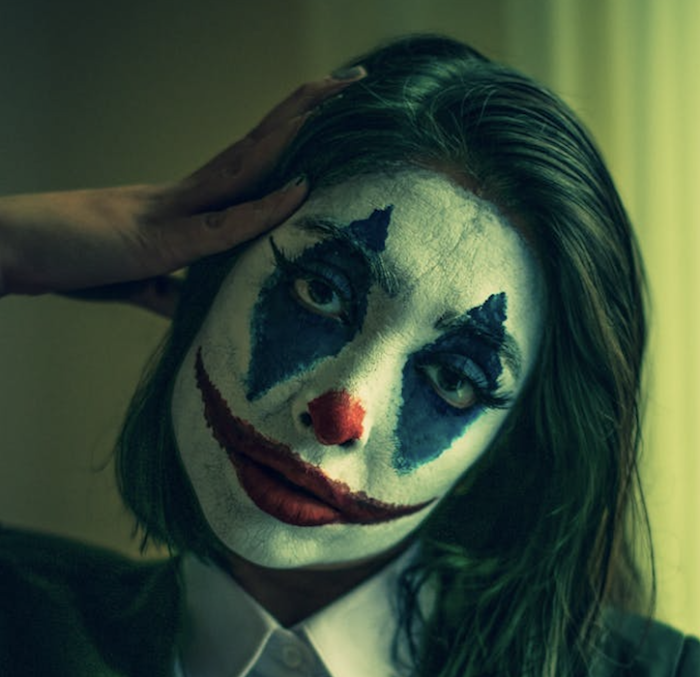{*Did you know you can write on Elephant? Here’s how—big changes: How to Write & Make Money or at least Be of Benefit on Elephant. ~ Waylon}
~
For the longest time, when people would ask what my favorite Marvel/DC character was I would think of the Joker (prior to the 2019 movie, which hit a lot deeper than I anticipated).
I always felt like the villains in superhero movies had more character and complexity, and were challenged by what it means to be human (or immortal) in many ways. Superheroes often felt one dimensional, inherently “good” with their main weakness being either someone they love (Spiderman and Mary Jane) or something that could weaken their powers (Superman and kryptonite).
Aside from the Hulk, who has recently climbed up the ranks of my favorite heroes, we don’t see as much tension with what it means to have character other than the challenges that come with carrying the literal weight of the world on their shoulders.
Villains are made so easy to hate, with origin stories that are often rooted in misunderstandings, jealousy, or comparison. Their storylines are built for us to see a clear opposition and root for them to lose. And the hero’s journey arc hasn’t just been built into superhero stories, but into romance, Disney, action, sci-fi, and other genres in film. It’s been reused time and again because storytellers, writers, directors, and filmmakers know that the hero’s journey pulls on our emotions in such a way that makes it a success each time.
Now there’s nothing wrong with a good story, an epic battle, a cruel character to band against, and a celebrated transformation. But things get slippery when we begin to attribute what we consistently see and hear in the media, especially as numerous people adopt therapy speak, to our realities. As we’ve seen a rise in personal development, therapy, and people committed to internal transformation, there’s also been a rise in assigning people labels and roles in our everyday stories.
We hear people labelled as “narcissist,” “victim,” “toxic,” and “villain,” and at times we are the labelers. We begin to see our life stories as black and white as we point fingers at all the wrongs done to us by another.
My partner and I recently watched the dating reality show “The Ultimatum: South Africa,” and were amused by how quickly people turned on one of the contestants (Khanya) because of her behavior; social media became flooded with comments putting her down and calling her out. A casual scroll through Reddit reveals tons of comments, like “A horrible person down to her rotting core,” “I hope everyone she has ever looked up to or admired tells her how vile she is,” and “Usually, I love a good villain, but the way she degraded Siza was cruel.”
While it might sound like I’m comment shaming people, I must acknowledge that Khanya’s behavior on the show was atrocious: she body shamed and sex shamed others, slapped her partner, and made outright mean comments. The key word here is her behavior; what Khanya does is not who Khanya is, which is the liberating part of growth—that we all have the capacity to change and choose to be better.
Of course, we have to desire to be better and choose that way of life, but it exists. We are not one dimensional beings stuck in slots of villain, victim, or narcissist for the lifetime that lies ahead of us. We get to choose! How liberating. Not just for the times we have been villainous, but the times we seem to sink into a victim mindset believing that the world and all that confronts us is against us. That systems are set up for us to fail, that good things happen to everyone but us, that the experiences we go through are exceptionally difficult for only us.
I want to reaffirm here that people do horrible things, people act out in narcissistic ways, people can be abusive or unhealthy, and that is not okay. But to pretend that we don’t have our moments when we fall short and continue to point a finger at all the wrongs of another is also not okay. We have all been given the opportunity to extend grace, and in the same vein receive it.
I have said some harmful things to others, excluded others, been a bully, and been a codependent partner. I have also had harsh things said to me, been backstabbed, ignored, and abandoned. In many instances I have attached to the victim identity and found myself down a deep abyss, feeling sorry for myself before I began to recognize that what others have done to me may not be my fault, but moving forward is my responsibility. I have also done wrong to others and my perfectionism has taken me into the wildest of shame storms before I could recognize that I needed to forgive myself for being human and learn from it.
What I’m asking each of us to do is bold—it’s to recognize that we are both Batman and the Joker.
We each have the opportunity to see every experience when we’re tempted to villainize another and to instead think about where that person could be coming from. That doesn’t mean we condone their behavior, but, when possible, we should address the behavior as a choice (rather than assigning it as an identity), set boundaries, and move accordingly. And at times when we’re tempted to victimize ourselves, we can use that as an opportunity to reflect on what we’re feeling, to self-soothe or find a safe person to vent to, to understand where the other person is coming from, and to recognize that we are so much stronger than we think.
This is how we step into strength in these moments—by exercising our choice.
It’s an inner revolution to go beyond seeing the world and the people in it as binary. It’s also an act of grace and compassion for ourselves when we do others wrong. It’s the hero’s journey turned upside down as we give ourselves and others an opportunity to both save the day and ruin it at any moment, knowing that either way we can grow through it.
~
{Please consider Boosting our authors’ articles in their first week to help them win Elephant’s Ecosystem so they can get paid and write more.}
~












Read 2 comments and reply